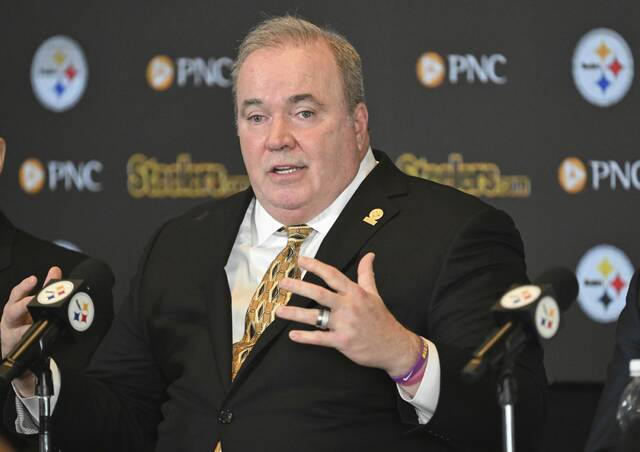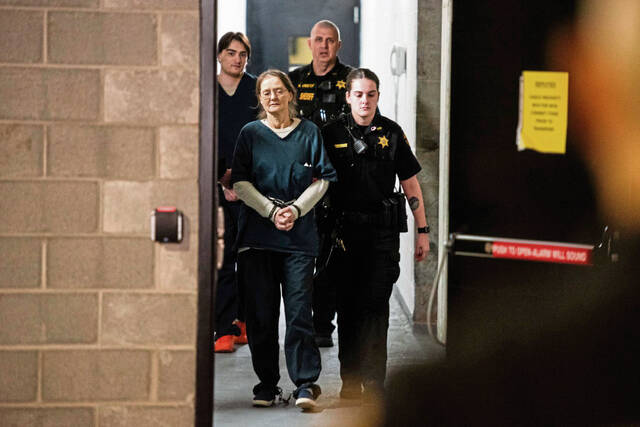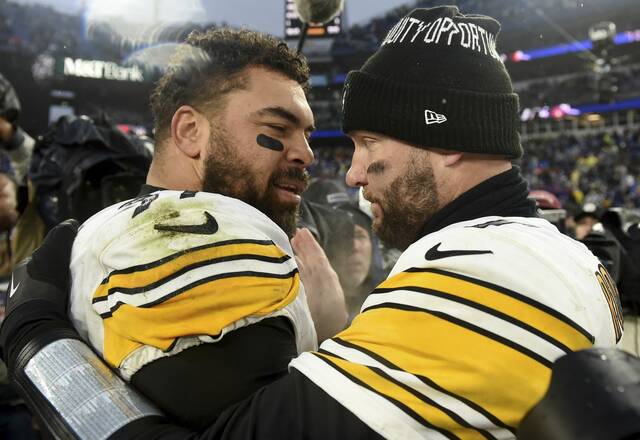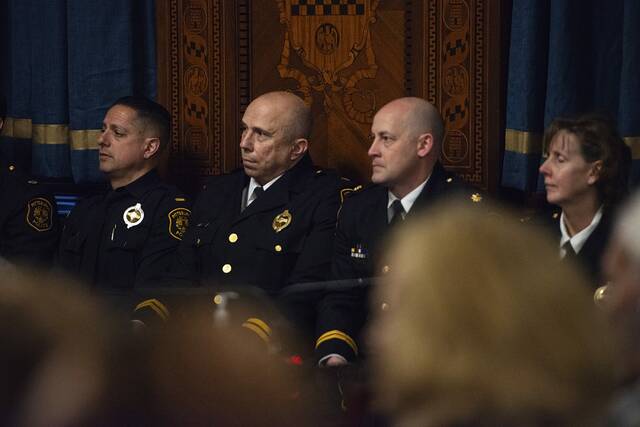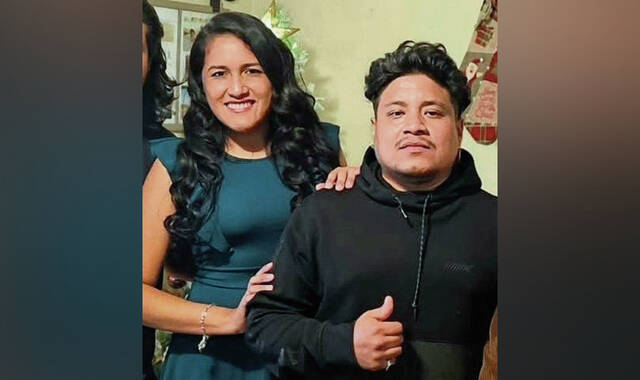Pittsburgh Police Chief Scott Schubert said Friday that he will retire in early July, ending nearly three decades of service with the bureau.
“Following deep reflection and significant discussion with my family, I have come to the decision that it is time to step away from the chief’s position and allow one of my brothers or sisters in blue the opportunity to serve this great city and this storied institution,” Schubert said in a statement.
“There has been no greater professional or personal joy than to have represented the City of Pittsburgh and the Pittsburgh Bureau of Police,” he added.
In a news conference in the mayor’s office, Gainey said Schubert’s decision to retire was fully his.
“He came to us and said he wanted to retire and I respected that,” Gainey said. “That was his decision.”
Schubert, a Pittsburgh native, has worked in law enforcement for 34 years, including 29 with the Pittsburgh Bureau of Police. He will work through July 1, according to a news release.
Gainey said a committee will be formed to conduct a nationwide search for the next chief.
McLay, who served from 2014 to 2016, was the first outsider chosen to lead the department in more than 150 years. Schubert took over the bureau upon McLay’s resignation in November 2016.
“Being a police officer is truly the only profession I have ever wanted to pursue, but not just any police officer,” Schubert said Friday. “From the time I was a young child I knew that I only ever wanted to be a Pittsburgh Police officer. I watched my father wear this iconic badge and patch each and every day and I knew I would follow in his footsteps.”
Schubert’s late father, Floyd, served in the department for 30 years, as did his uncle, Leo Mullen. Mullen’s father was a Pittsburgh officer in the early 1900s.
“I have never regretted that decision for one moment,” he said. “To put on this uniform every morning still fills me with such intense pride, but it’s been the opportunity to work with our officers and the community to create a more equitable, safe and inclusive City of Pittsburgh that has been my greatest passion and motivating force as chief.”
Gainey said the search committee for Schubert’s replacement will include community members, public safety officials, subject matter experts and others. It will be able to select a search firm to assist in the national search and should present its findings to the administration in six months, Gainey said, adding that the process will be “centered around the voices of community members.”
Deputy Chief Thomas Stangrecki will serve as acting chief until a permanent replacement is hired, Gainey said, noting the department will be “in capable hands.”
Schubert’s announcement comes two weeks after Gainey’s transition team issued a report indicating that it felt new leadership was necessary.
“New leadership is needed to ensure the (chief) is committed to the new vision for public safety and being a leader in its implementation,” the public safety transition committee wrote. “This process should be implemented immediately.”
City Councilman Anthony Coghill, D-Beechview, blasted that section of the transition team’s report.
“I lost all confidence in the transition team who recommended such an irresponsible and destabilizing opinion to replace Chief Schubert,” Coghill said, adding that he wished Schubert would be with the city longer.
“There are many difficulties that will be facing this police department that he fully understood and knew how to address,” Coghill said, adding that he had concerns with the possibility of hiring someone from another part of the country who may not understand the city’s unique needs and situations.
Council President Theresa Kail-Smith, D-Westwood, also expressed concerns about bringing in an outsider to lead a department that has experienced its fair share of turmoil of late, including a rise in gun crimes.
She said the city “cannot afford a learning curve in teaching somebody outside of the city what’s going on” in Pittsburgh’s 90 unique neighborhoods.
“We appreciate the things he has accomplished for the city, including the strong community-police relations he has built during the years and his work with the Special Olympics,” she said. “During the shooting at Squirrel Hill, during some of the most challenging times in the City of Pittsburgh, he managed to get us through as a city.”
Schubert has championed a number of causes during his tenure both as an officer and as chief. He is a member of the board of directors for the Special Olympics of Pennsylvania and has regularly participated in fundraisers like the Polar Plunge and Law Enforcement Torch Run.
He also is on the board of 412 Boxing, a nonprofit that works with the Police Athletic League. The gym works specifically with under-privileged young people. Schubert and other members of law enforcement were on hand at Pittsburgh International Airport last summer when two young boxers returned from the National Junior Olympics in Texas.
“It’s just something for us to show, ‘We’re so proud of you, of what you’ve accomplished,’” Schubert said at the time. “These are good kids.”
Last year, Schubert fulfilled a personal goal of walking the beat in all 90 of the city’s neighborhoods.
“It was something that meant a lot to me,” Schubert told WPXI-TV upon completion of his goal.
Schubert was leading the department when George Floyd-inspired protests began taking place across the city, some of which ended in violence and questionable tactics. The bureau came under fire for its use of a so-called “low-profile” arrest of a protester as well as the use of tear gas and munitions on protesters.
Days after the protests erupted, Schubert participated in a protest in the city’s Beechview neighborhood, ultimately taking a knee alongside others when invited to do so by organizers.
“I did it for all minorities who have experienced decades — centuries, actually — of systemic racism and discrimination,” he said at the time. “I did it for all of those people around me on Friday, peaceful protesters who want real and meaningful change, not ill-conceived, knee-jerk reactions.”
Two years earlier, he led the department through protests spurred by the shooting of an unarmed Black teenager by a suburban police officer. Months later, five of his officers were shot during the mass shooting at the Tree of Life synagogue in Squirrel Hill.
Reflecting on the massacre a year later, Schubert said that what helped him through that time was hope and belief.
“In who you are and in what you do, what you stand for, what your organization stands for — knowing that you have to do what you’re trained to do,” he said in 2019. “For most people, they’re not thinking about any of that at the time, they’re reacting.”



